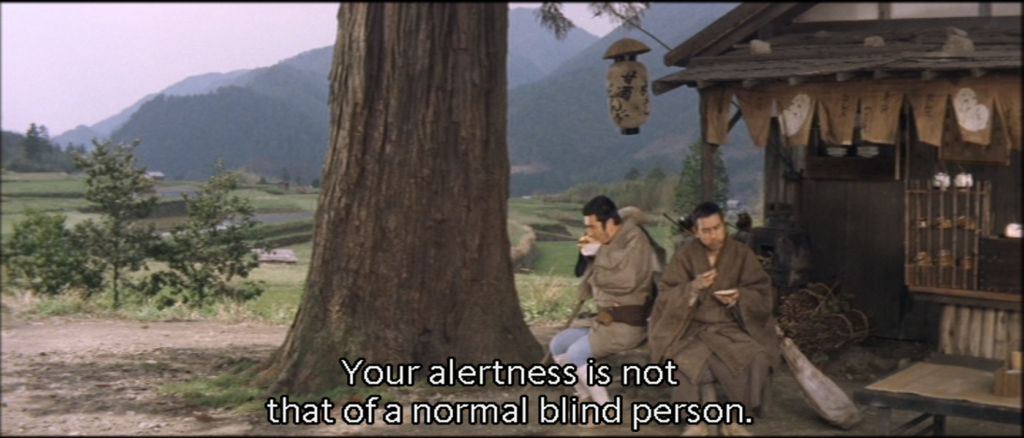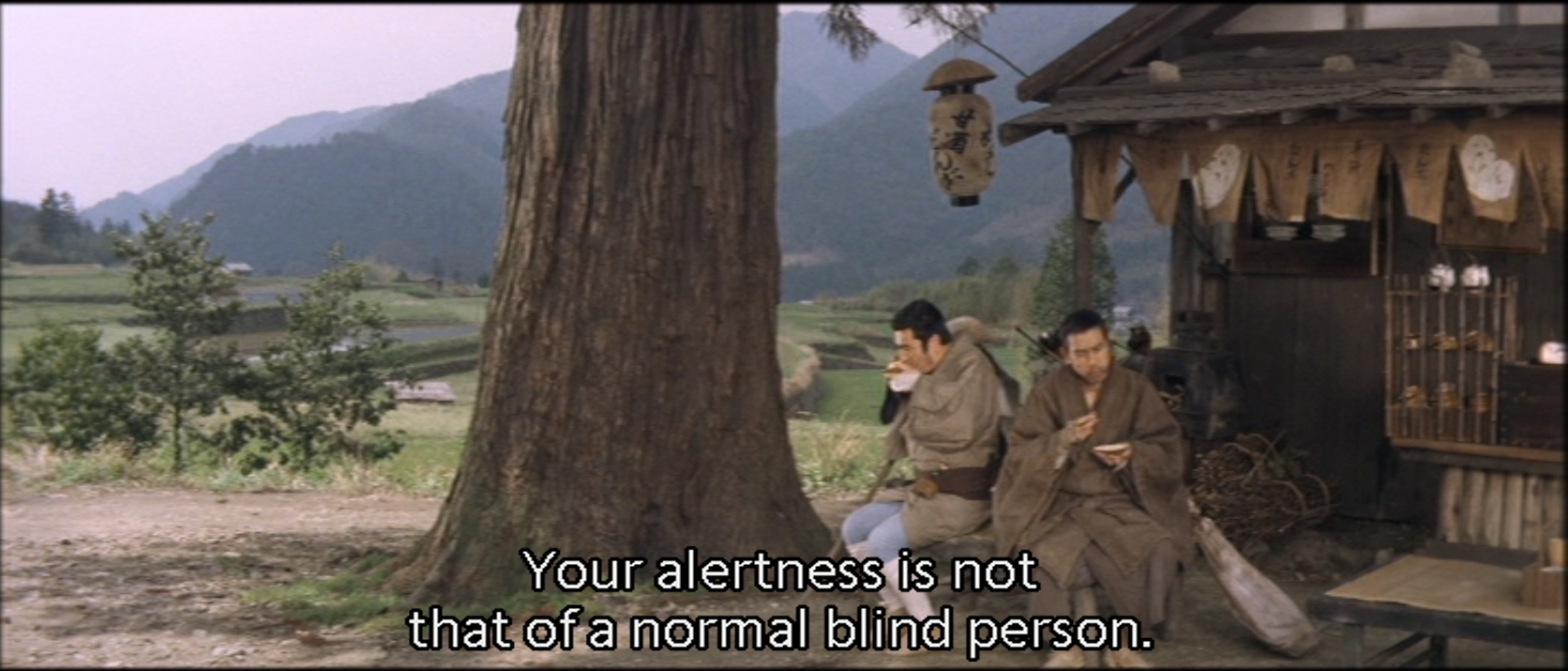Movie Review: Zatoichi’s Vengeance (1966) directed by Tokuzo Tanaka
Let’s look at one of the Zatoichi films! This Japanese series ran for 26 films from 1962 to 1989, all starring Shintaro Katsu as the titular blind masseur. Plus a five year TV series, and a couple of modern remakes. From the relatively scanty hints of backstory in various films, we know that Zatoichi (not his birth name) lost his sight in early childhood due to illness. His father abandoned him and his brother soon after. Zatoichi was taught the skills of an aman masseur, a profession by law only allowed to the blind. But he also obtained training in swordsmanship and other combat skills. For a while he turned to crime as a yakuza and did things he’s now ashamed of, but he still gambles when he gets the chance, and is on friendly terms with some of his old colleagues. Now Zatoichi wanders the land, trying and usually failing to stay out of trouble. There are just so many people who need help!

This is the thirteenth movie, not to be confused with Zatoichi’s Revenge, which was the tenth movie. The Japanese title is more distinctive, Zatôichi no uta ga kikoeru, roughly “Listen to the song of Zatoichi.”
At the beginning of the movie, Zatoichi (Shintaro Katsu) stumbles across an act of highway robbery. He dispatches the robbers, but it’s too late for the victim, a man named Tamakichi. The dying man entrusts Zatoichi with a money pouch to deliver to “Taichi.” The masseur is not sure how he’s going to do that. Shortly thereafter, Zatoichi meets a blind, biwa-playing priest (Jun Hamamura), who mentions he’s headed towards a nearby peaceful village that’s having a “thunder drum” festival. After considering for a while, Zatoichi decides to visit that village as well.
Sure enough, the first person he meets in the village is a boy named Taichi (Masanori Machida), who has a missing father named Tamakichi. Zatoichi delivers the pouch to Taichi’s grandmother (Kanae Kobayashi) and fibs about Tamakichi’s current status. It’s noted that the village is not as peaceful as it used to be. A yakuza gang led by Boss Gonzo (Kei Sato) has moved in and has been taking over the local businesses to turn this into a den of vice.
Zatoichi tries to avoid getting involved, especially as the biwa priest warns him against setting the impressionable Taichi on a path of violence. But Boss Gonzo’s gang just won’t stop doing evil in his vicinity. Further complications arise when hooker with a heart of gold Cho (Mayumi Ogawa) is tracked down by her estranged husband, impoverished ronin Genpachiro Kuroda (Shigeru Amachi). Desperate to raise enough money to buy out Cho’s contract, Kuroda accepts a job killing Zatoichi.
At the end, the village is free of yakuza domination, but not everyone’s story ends happily. Zatoichi cannot stay, as he knows violence will once again find him.
This is a pretty representative entry for the series. The biwa priest is the most interesting twist on the formula, a foil to Zatoichi because he is also blind, but has dedicated his life to music and wisdom rather than to vice and violence. He gets a nice musical number. Zatoichi considers the priest’s points, but is unable to turn away from people in need, and does not have the tools to solve problems without killing.
As always, there’s exciting sword fighting action, with the most exciting setpiece being a fight on a bridge as the yakuza try to block Zatoichi’s keen hearing with taiko drumming.
Kuroda’s subplot seems a little crammed in to provide the one really tough opponent required by the formula.
Content note: Several swordfights, usually lethal. Gonzo’s goons bully various characters, focusing early on Zatoichi because he’s blind and thus theoretically easy to bully. Zatoichi lies to spare people’s feelings. Prostitution is mentioned, but we never see the women at their actual job.
Overall: This classic series is a lot of fun, but the formula can wear a bit thin, so maybe space them out. This one is perfectly good, but perhaps the most famous is Zatoichi Meets Yojimbo which guest stars Toshiro Mifune. Recommended to fans of samurai movies with a gimmick.

